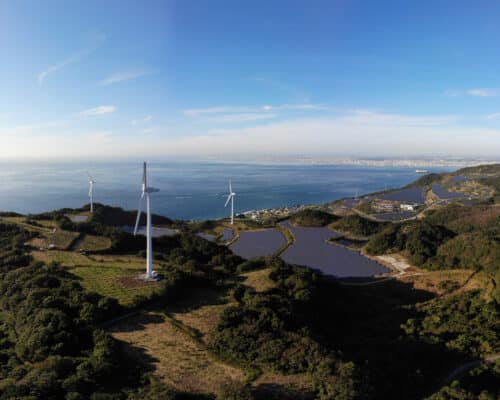G7 Ministers’ Meeting 2023: What Is the Desired Outcome?
13 April 2023 – by Viktor Tachev
The G7 Hiroshima Summit will be held from May 19 to 21, 2023, in Hiroshima, Japan. Considering the topics on the summit’s agenda, the G7 Ministers Meeting 2023 will go down in history as a crucial moment. The outcome will either speed up fossil fuel phase-out or lock the world into a future of climate disasters. Yet, in the run-up to the meeting, the signs remain worrying, especially from the host’s side.
The Crucial Topics on the G7 Hiroshima Summit 2023 Ministerial Meeting Agenda
The G7 Ministers’ Meeting comes shortly after the damning IPCC Synthesis Report. The report warned that fossil fuels remain a barrier in the effort to secure a liveable future.
The topics will include Japan’s Green Transformation (GX) plan, which includes investment in clean coal, hydrogen and ammonia co-firing capacity and proposals for increased LNG investment. Japan’s goal for the full decarbonisation of the power sector by 2035 will also be discussed, as well as concrete dates for a coal phase-out, the role of CCUS technologies and ways of urging the biggest emitters to peak their emissions by 2025.
The G7 Versus Japan: Deciding the Fate of Fossil Fuels
As the host of this year’s G7 meeting, Japan is responsible for creating the draft text. However, according to experts, it is weak and not aligned with the common goal of slowing climate change down. Instead, the text is biased and intentionally designed to promote Japan’s fossil fuel interests.
Kimiko Hirata, the founder of Kiko Network and Climate Integrate, notes that the draft risks backsliding from the previous G7 meeting’s agreements. She adds that Japan has a strong interest in maintaining the status quo and prolonging the life of fossil fuels. The reason is that many private companies have actively participated in such projects and don’t want to lose their investments.
Hirata adds that most of them are strongly tied to METI and the political parties in the country. As a result, they have the influence to block climate policy progress.
Senior Associate at E3G Alden Meyer sees the draft as the final form of Japan’s strategy to promote clean coal. He warns that, if agreed to, it risks extending the operational lifetime of coal all across Asia.
Analysts see pushback from other countries against Japan’s proposals in order to preserve the 1.5°C target.
The UK and Canada are expected to address the lack of decision regarding the coal phase-out. However, according to Meyer, the decision might not come to fruition without the US pressuring Japan.
David Ryfisch from Germanwatch expects the G7 and the EU, in particular, to continue opposing Japan’s natural gas and LNG investment proposals in line with the IEA’s net-zero scenario recommendation that there should be no new exploration.
What Japan Aims To Do
Experts see Japan pursuing three main goals.
The first is adding its Green Transition policy to the final text. The GX, a strategy that Price of Oil describes as a “greenwashing exercise” promotes questionable technologies like clean coal, ammonia and hydrogen co-firing and voluntary emissions trading.
According to Hirata, Japan aims to get the group’s approval so that these technologies can benefit from government subsidies. Furthermore, it would help the country export them to other nations as an alternative to phasing out fossil fuels.
“Japan’s toxic energy strategy is derailing Asia’s energy transition. The “Green Transformation” policy is just a euphemism for technologies that prolong the use of fossil fuels, and Japan is pushing hard to promote these technologies in South and Southeast Asia. As the host of this year’s G7, it is Japan’s responsibility to act now and transition towards cleaner and more sustainable energy sources, not hide behind greenwashed fossil fuels. Japan must change course and not hold back the rest of the G7 nations in this crucial fight against climate change.”
Makiko Arima, Japan Finance Campaigner, Oil Change International
Next, Japan aims to advocate increased LNG investments and promote upstream gas projects.
Meanwhile, Hirata notes that the country doesn’t want a deadline for a coal phase-out. As a result, it will probably oppose the total decarbonisation of the power sector by 2035.
The Risks of Japan’s Strategy
According to Hirata, Japan didn’t explain the specifics of the GX to other countries in detail. As a result, there are fears that the countries may struggle to recognise the false solutions within. If the G7 adds the GX to the final text, these technologies might be expanded to developing countries, threatening their economies and decarbonisation goals and undermining JETPs. In fact, this is already happening, causing society groups across Bangladesh, Indonesia and the Philippines to voice their concerns.
While Japan proclaims that these solutions will strengthen countries’ energy security, they risk doing the opposite. Investing in these technologies will risk temperature rising above the 1.5°C goal and create billions in stranded assets.
“Energy security and climate security are one and the same. The key to ensuring them is switching to renewables. You can’t embargo or shut off the sun or wind. The G7 should push to improve the 2035 power sector commitments and oppose the ammonia co-firing proposals and the additional investments in gas infrastructure.”
Alden Meyer, Senior Associate at E3G
The Outcome that the World Needs
David Ryfisch stresses the importance of accepting more definite and stronger language for the final text – similar to France’s proposals, which include well-outlined definitions of prohibited activities – so that there is no longer room for exploiting loopholes.
“Terms like “predominantly” should be fixed with numbers and made concrete since such vague language leaves room for interpretation,” adds Meyer.
According to Hirata, Japan is exploiting vague wording – like the term “predominantly” – to retain its fossil fuel interests and avoid changing local policies.
However, the risk is that these local interests have a global impact. To avoid falling deeper into the fossil fuel trap, the G7 should push against Japan’s proposals for increased natural gas investments, ammonia co-firing schemes and lack of clear rhetoric on coal phase-out.
Furthermore, the G7 ministers should progress on phasing out fossil fuel subsidies. In addition, they must deliver on their promise to end international coal financing, a promise that Japan, Germany and Italy continue to break to date.
Meyer and Ryfisch expect G7 countries to unite in putting pressure on leading polluters like China to reach an emissions peak by 2025 – something their economies are on course to achieve.
Last but not least, the G7 should rise to the occasion and commit to implementing the IEA’s recommendations for a net-zero scenario, thus spearheading the decarbonisation of the global economy.
Towards G7, G20 and COP28
The discussions at the G7 Ministerial Meeting must set the tone for this year’s important summits – from the G7 Leaders’ Summit in May to the G20 and COP28 summits.
However, it is clear that there is strong division within the G7. While most members share the same views on many of the agenda’s topics, Japan acts in opposition.
“Japan doesn’t care about the climate urgency,” says Hirata. And judging by the country’s recent actions, it won’t change its position overnight.
In the words of David Ryfisch from Germanwatch, “How will G7 countries lead if they aren’t making any measurable progress on their long time commitments?”
The world needs the rest of the G7 members to stand up to Japan and fight for solutions that will tame the climate crisis, not exacerbate it.
by Viktor Tachev
Viktor has years of experience in financial markets and energy finance, working as a marketing consultant and content creator for leading institutions, NGOs, and tech startups. He is a regular contributor to knowledge hubs and magazines, tackling the latest trends in sustainability and green energy.
Read more






